With the University year now over, it’s back into the planning period, developing ideas for repertoire and programming for next year.
 One of the projects I’m currently devising for the University Cecilian Choir is a performance – well, perhaps ‘realisation’ is a more appropriate term – of David Lang’s Memorial Ground, co-commissioned by East Neuk Festival and the 14-18 NOW: WW1 Centenary Art Commissions, to commemorate the Battle of the Somme.
One of the projects I’m currently devising for the University Cecilian Choir is a performance – well, perhaps ‘realisation’ is a more appropriate term – of David Lang’s Memorial Ground, co-commissioned by East Neuk Festival and the 14-18 NOW: WW1 Centenary Art Commissions, to commemorate the Battle of the Somme.
What’s fascinating to me about the piece is the multitudinous ways in which it can be realised. The piece’s great strength is its adaptability, its flexibility which allows ensembles to craft it in a way which will make it unique to their performance. The possibilities of including poetry, spoken word, wordless solos, even instruments, offers plentiful creative opportunities to put together a performance that can reflect, resonate with, or speak to different spaces, different venues, different times. Usually, as a conductor, you’re endeavouring to be as fidelious to the score as possible, paying close attention to realise the piece in a way faithful to the composer’s intentions. With this piece, however, you are given freedom to realise the piece in any manner you wish, using content supplied by the composer but also with the ability to involve additional material beyond that supplied by Lang. Of course, there’s a responsibility to make sure that new material is appropriate to the nature of the piece’s artistic intent, that it fits thematically, emotionally, such that the piece can accommodate it, without the new ideas feeling deliberately grafted or imposed onto the pre-composed material.
Once the new academic year begins in September, the Cecilian Choir will form at the beginning of October, which will give us approximately four rehearsals to put the piece together, and I’m hoping to be able to perform the piece several times during November, the month of Remembrance, in contrasting venues – one of which might be the bomb-crater on the hillside north of the city, on the University campus. The crater dates from the Baedeker Raids between 31 May – 7 June during World War Two, rather than from the First World War, but it remains as tangible evidence of the countryside scarred by armed conflict. A performance of the piece, with the Choir at the bottom of the crater and audience arranged around the slopes, might be particularly effective, as the piece speaks across the years to a site directly connected with the country at war.
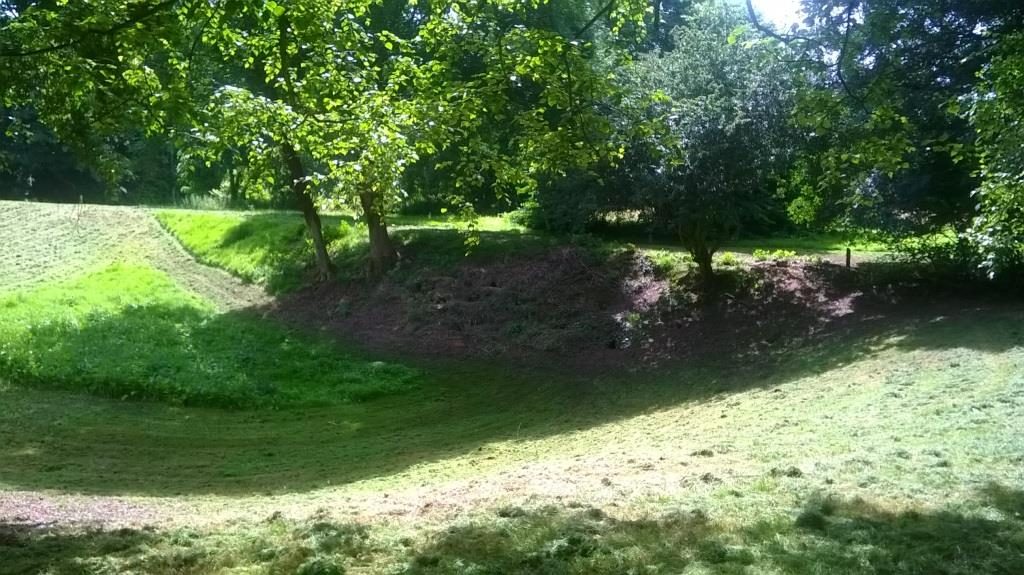
It’s particularly exciting to be preparing the piece to start rehearsals in October, searching for suitable materials to use as text, including poems, and songs from the period, to imagine different ways in which to bring the piece off the page, and to consider suitable venues in which to bring it to life. It would be a fitting way of commemorating the events of the Battle of the Somme, and all those who gave their lives – both then and ever since – in war.
We’ll keep you posted as to how the project unfolds.
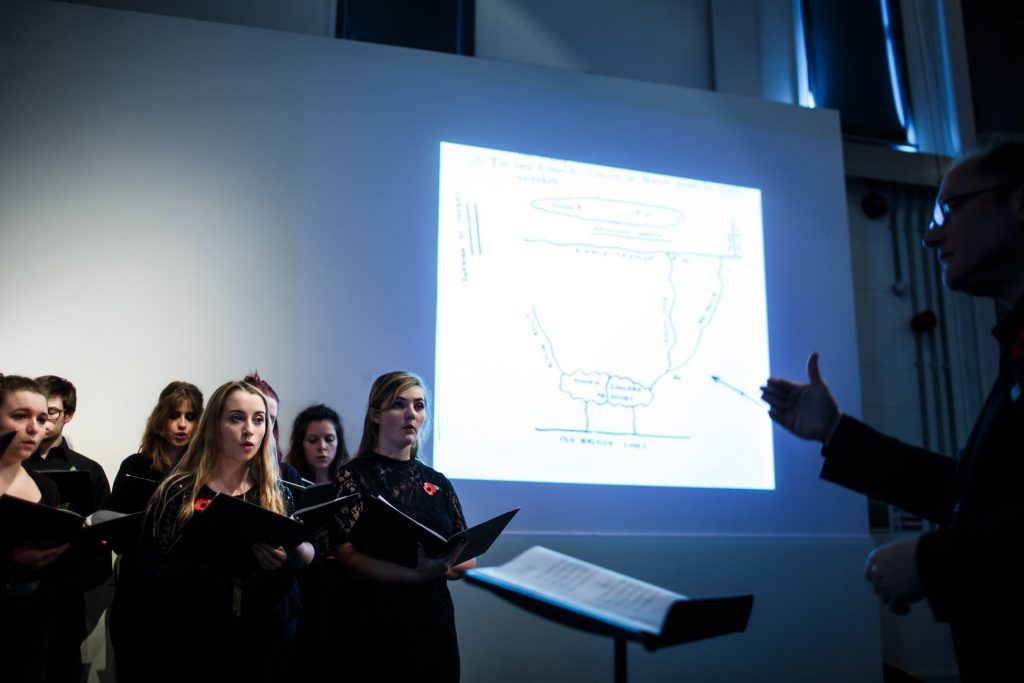
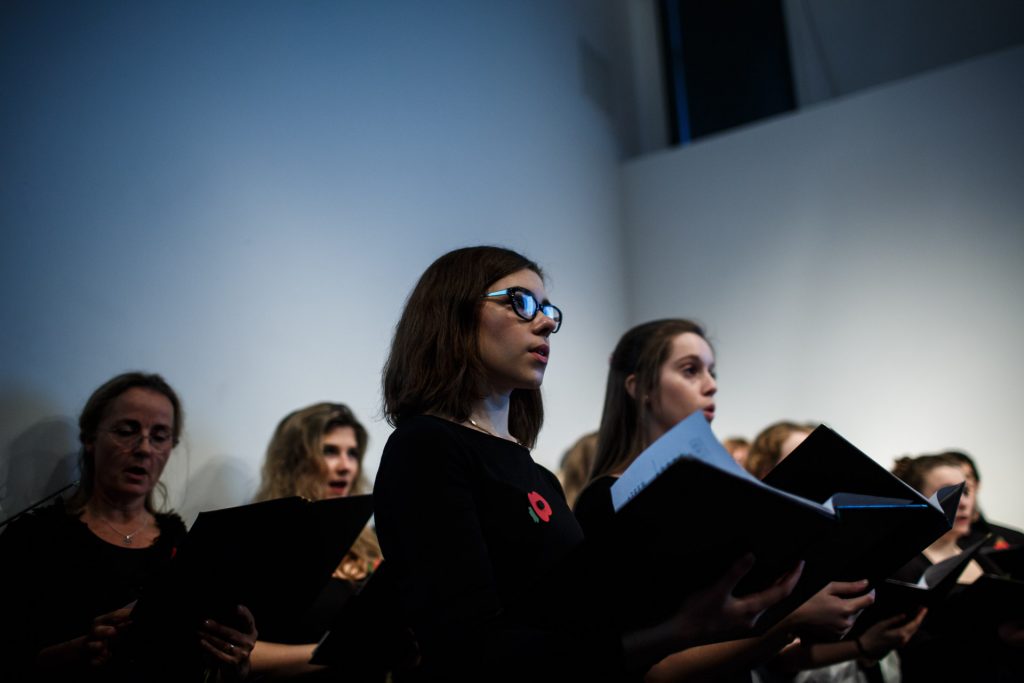
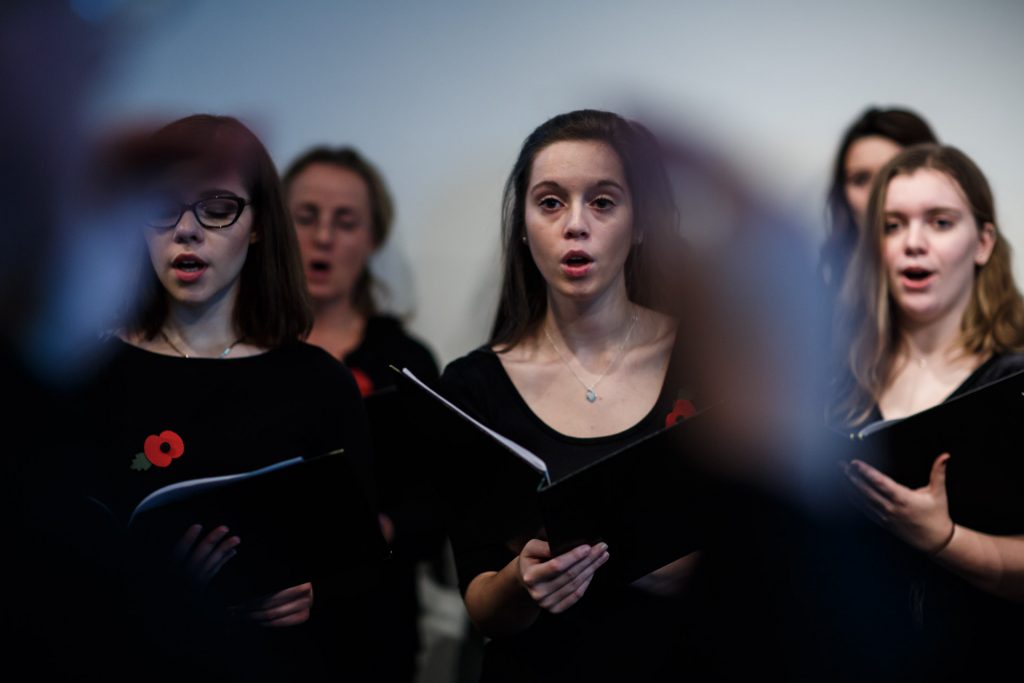
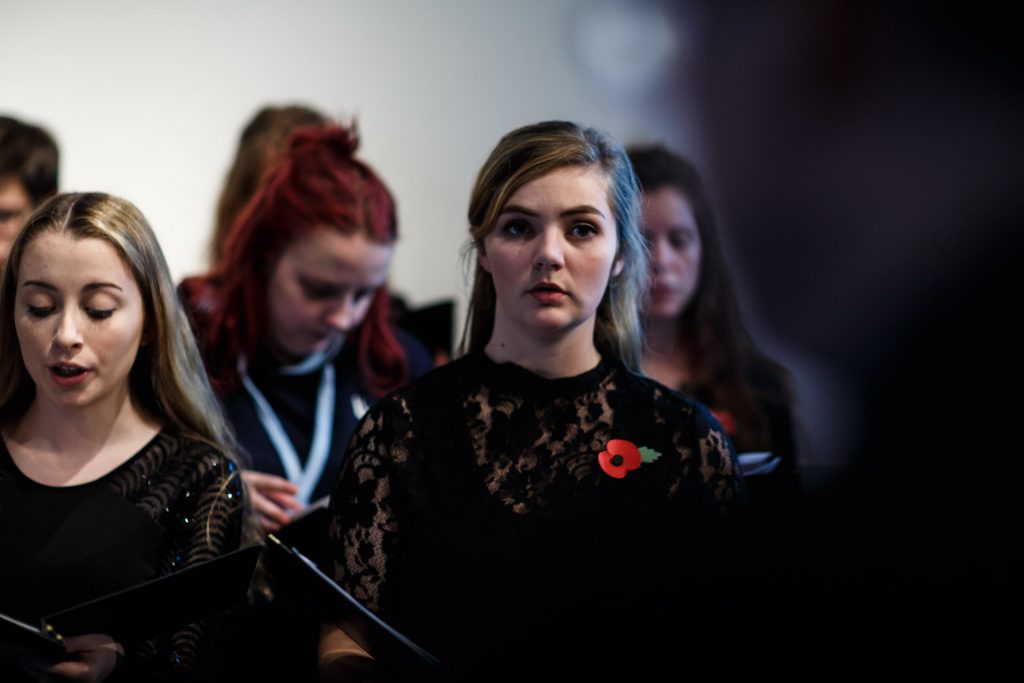
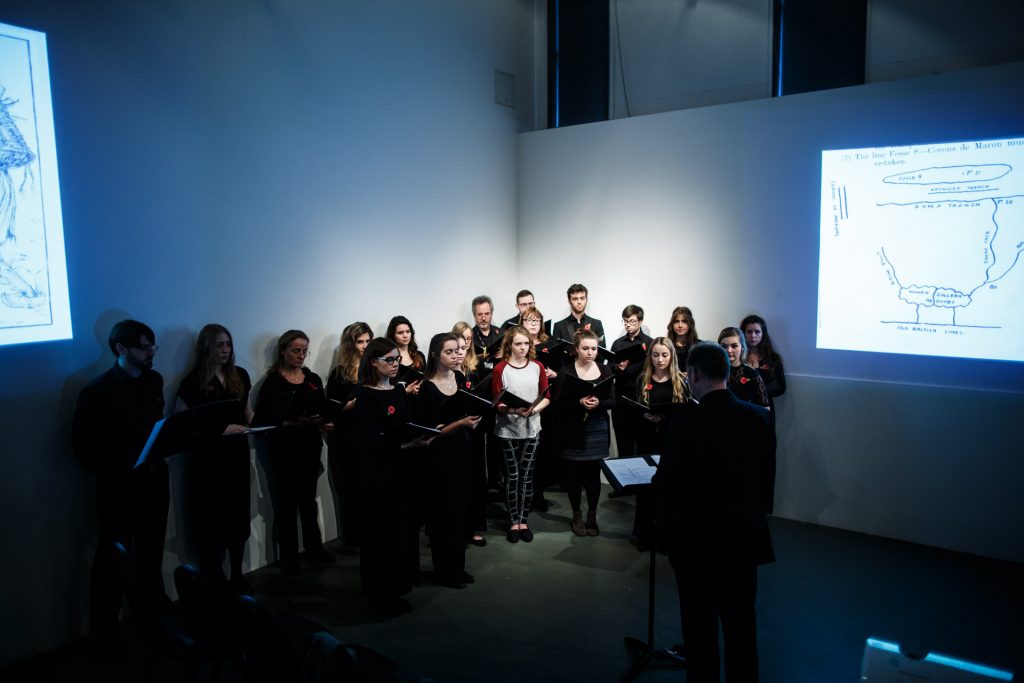
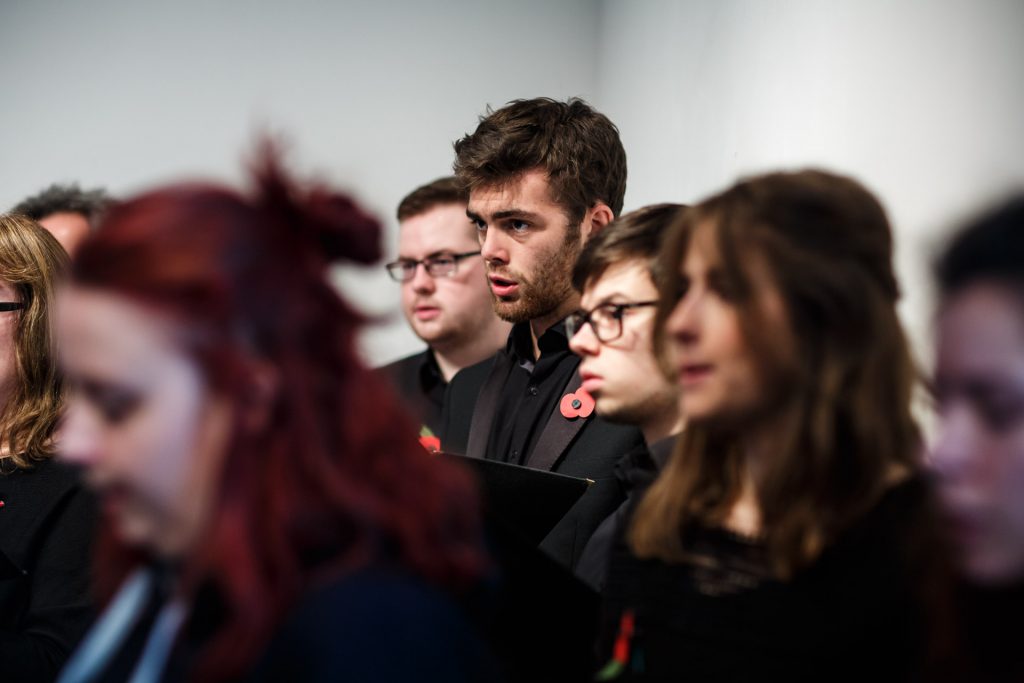
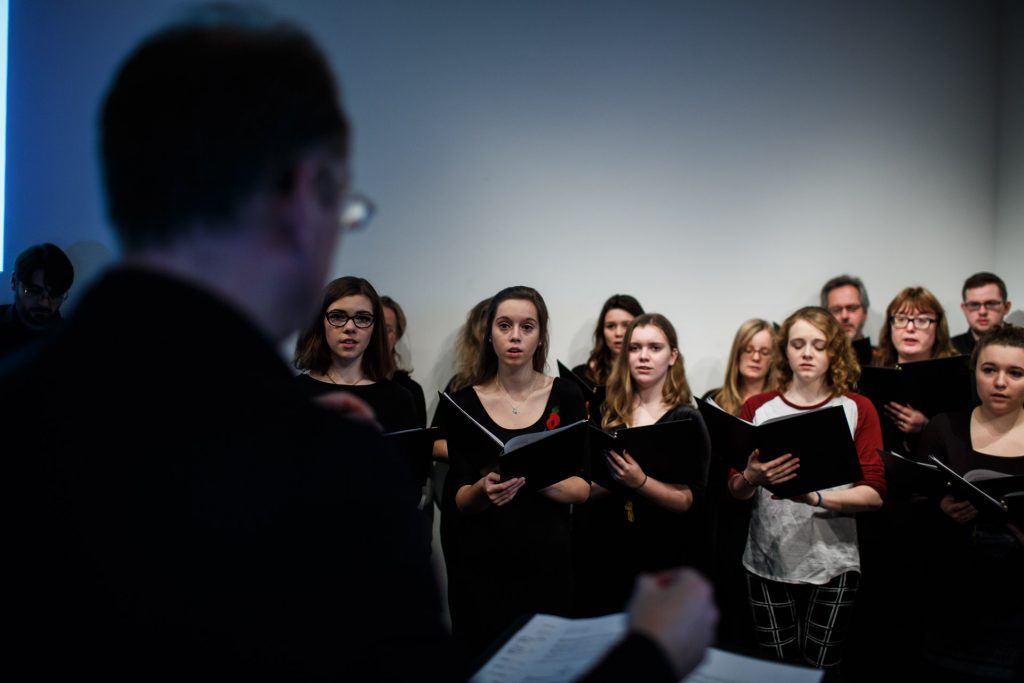

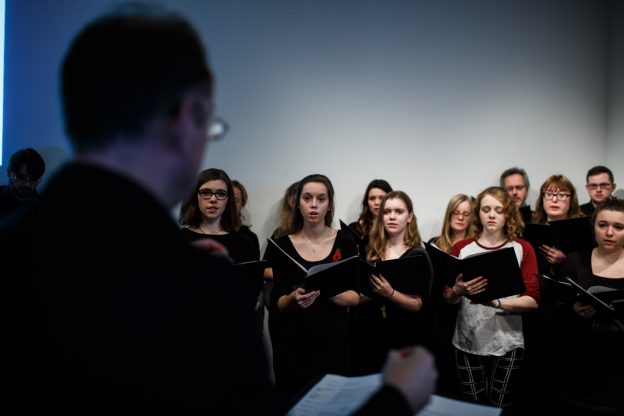
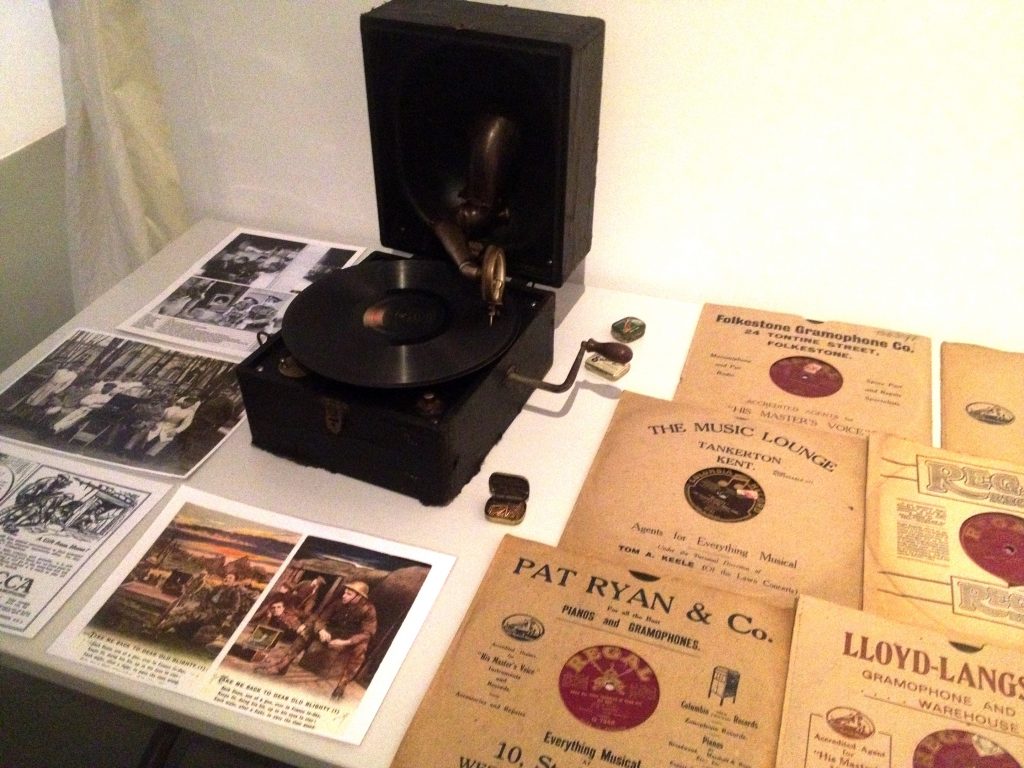 The arriving audience was greeted by the evocative sound of an original period portable phonograph playing records from the time, generously loaned for the occasion by Andrew Briggs, member of staff and also a member of the Choir.
The arriving audience was greeted by the evocative sound of an original period portable phonograph playing records from the time, generously loaned for the occasion by Andrew Briggs, member of staff and also a member of the Choir.
 The performance on Thursday 10 November at 1.10pm in Studio 3 Gallery, which will be prefaced by a performance of The Last Post, is free, and is one of three events taking place across two days as we commemorate the anniversary of the Battle of the Somme; more details
The performance on Thursday 10 November at 1.10pm in Studio 3 Gallery, which will be prefaced by a performance of The Last Post, is free, and is one of three events taking place across two days as we commemorate the anniversary of the Battle of the Somme; more details 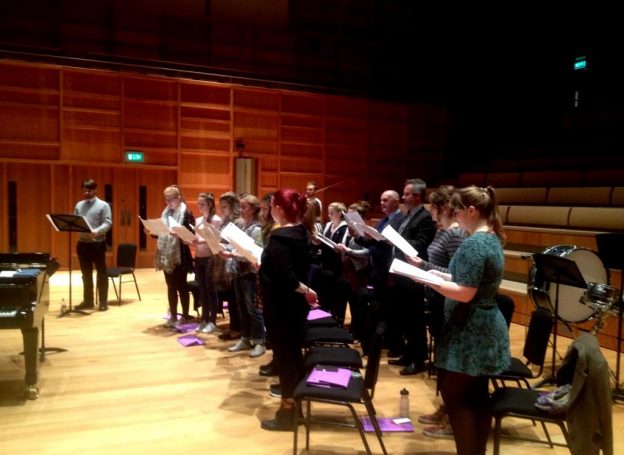
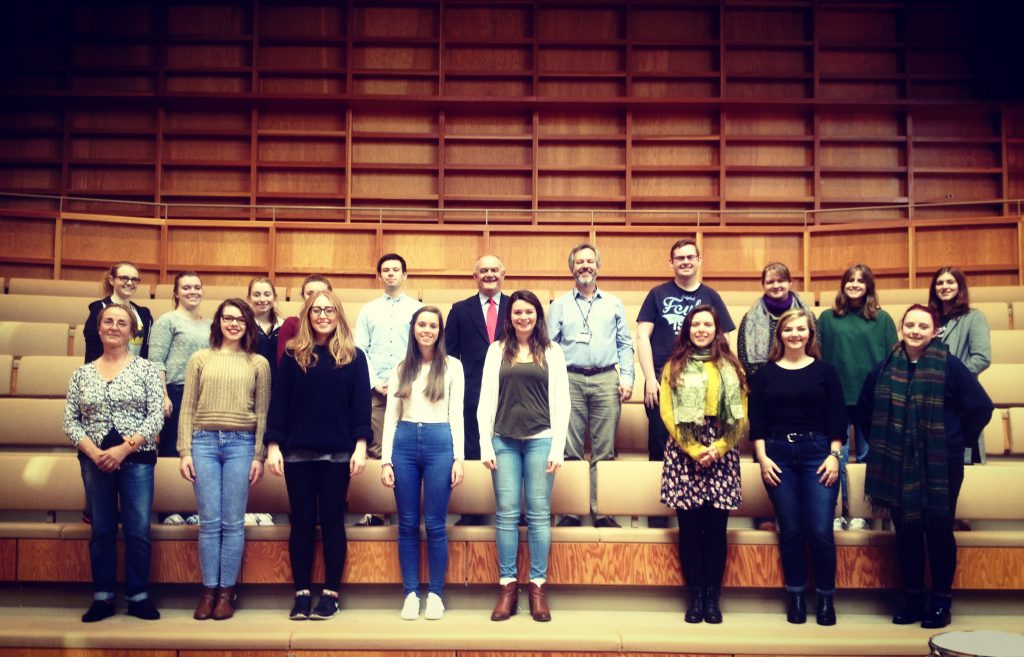
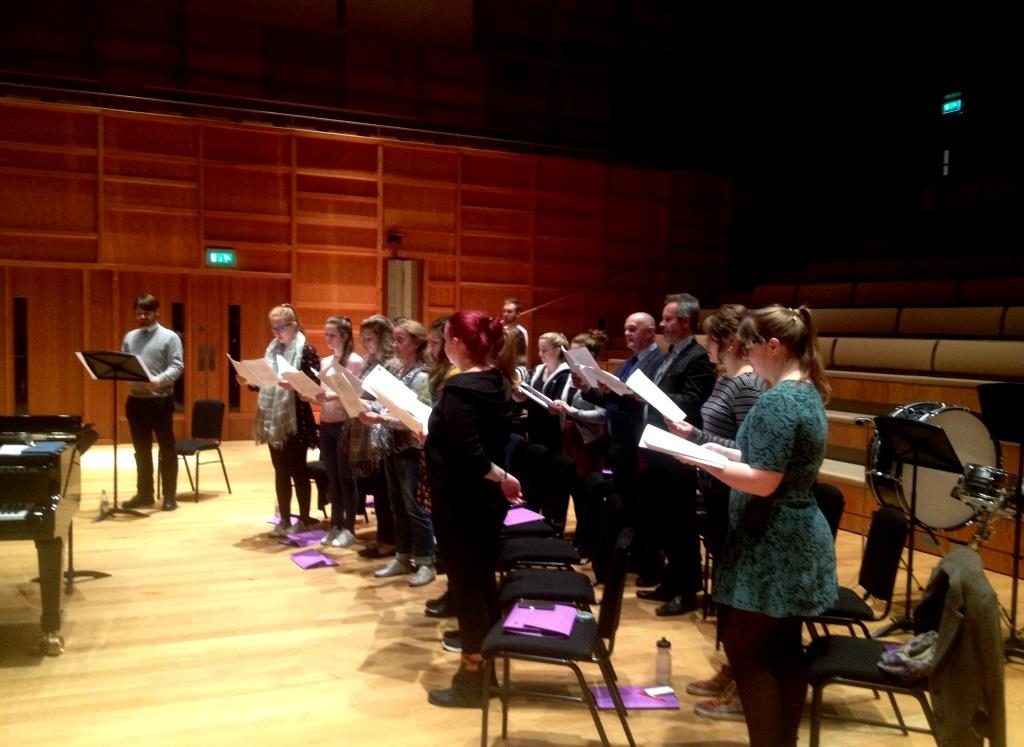

 One of the projects I’m currently devising for the University Cecilian Choir is a performance – well, perhaps ‘realisation’ is a more appropriate term – of David Lang’s
One of the projects I’m currently devising for the University Cecilian Choir is a performance – well, perhaps ‘realisation’ is a more appropriate term – of David Lang’s 